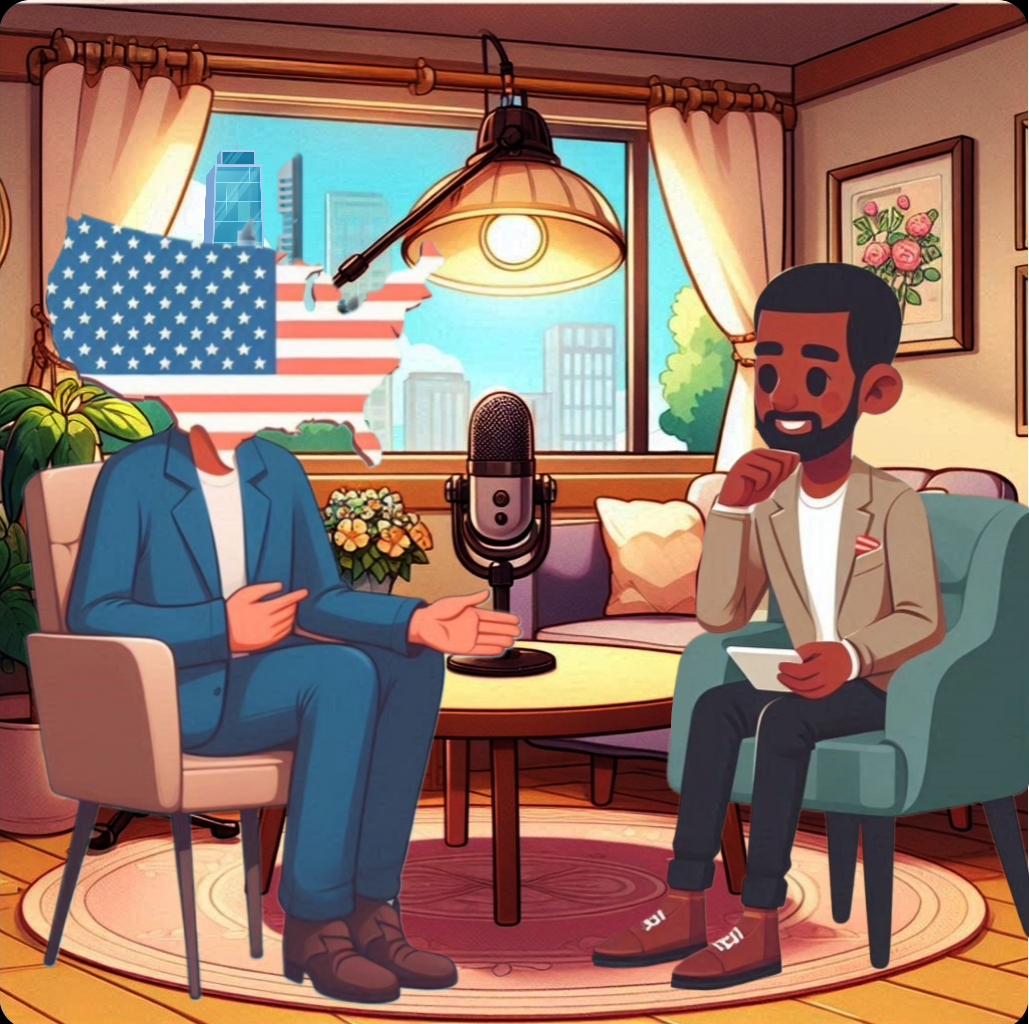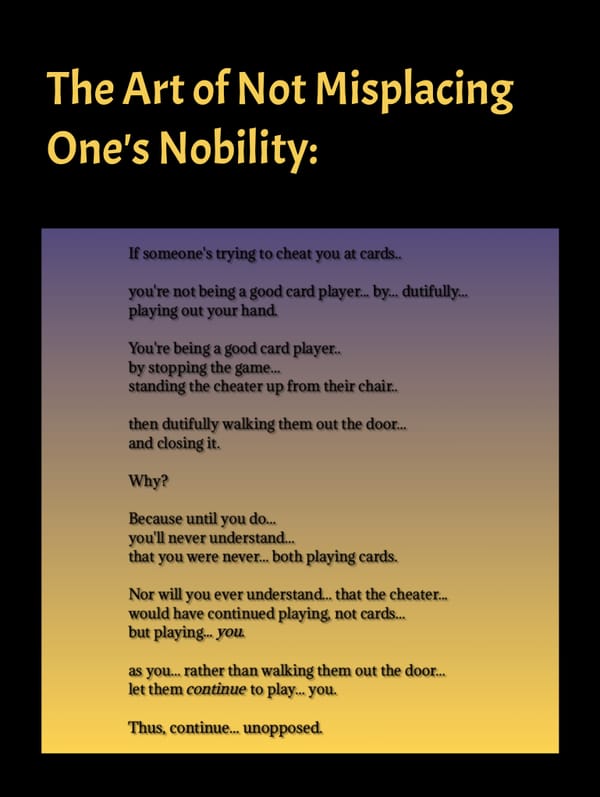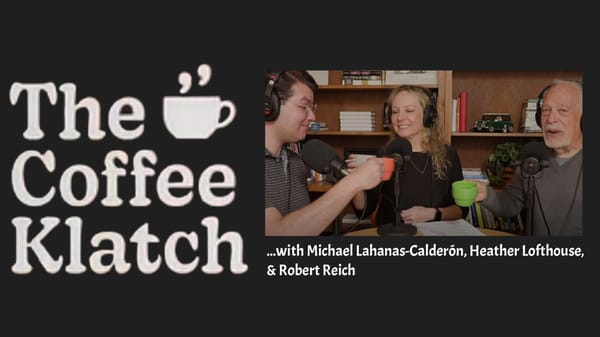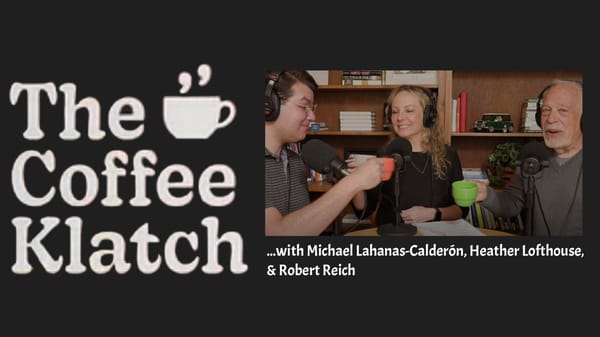Reflections of America: A partial interview transcript from the future.

150 years from now
(Note: Beginning of interview was not received during temporal transmission.):
{TEMPORAL TRANSMISSION CALIBRATION IN PROGRESS. STANDBY.}
§°°^¢¥¥€RICA: Yes, thank you. I'll definitely have more to say on that once France makes it official after the final details are in place and officially announced.
INTERVIEWER: Exciting times. And now, I want to switch gears for a moment, if I may, and ask you about something perhaps a little bit more personal.
AMERICA: Sure.
INTERVIEWER: Having to do with a difficult time you once experienced... when you were a little younger.
AMERICA: Right, yes– I think I know where we're going now– please, fire away, I'm an open landscape.
INTERVIEWER: So... you've shattered many records for how long your democracy has survived, others having failed after considerably much less time, and most globally prominent nations, in and of themselves, collapsing, or at least severely diminishing after maybe, at most, a couple hundred years.
AMERICA: Yeah, but I should say, and I think you're about to ask me anyway, so I'll just dive in.. I came damn close to screwing it all up, though. I mean... I shudder to think about it now... but I almost fell for a classic dictatorship– poisoning the blood, absolute power, the whole fascism shebang... and under this... reality TV star, of all things.
INTERVIEWER: Yes. And as has been noted by historians, many at the time had you on the ropes slated for the same fate that so many fell to when facing it themselves before.
AMERICA: Yep, I was a hot mess back then. Do people still say that? I think I just dated myself with that old timey expression, haha. Do people still say 'old timey?'
INTERVIEWER: (Laughs) I'll allow it.
AMERICA: But getting back to it.. you know, I gotta say, and this is something I've thought about a lot over the decades... ever since the twin towers fell way back in aught 1... I basically realized– many years later, mind you.. that I had some unprocessed trauma at the time and for a while after that which I prematurely thought I had already worked through but... I think which had still left a little... unrepaired wreckage, so to speak, in my psyche that I didn't even realize was there. I repressed it for a while but it was just waiting to come out. It took about 20 years but it really kicked up a lot of things for me over the next couple of decades. And what can I say? Like so many of us, I was at kind of a vulnerable time in my life. And so... I ended up getting into a really bad relationship with this classic right-out-of-the-textbooks typical narcissist. Ugh, man. Just couldn't shake the guy at first. Really got under my skin, you know?
INTERVIEWER: Been there. I imagine those mental health programs you eventually started mainstreaming for yourself really made the difference from there on out, especially with narcissistic abuse awareness going through the roof after your rough patch.
AMERICA: Yeah, and thankfully I had a couple of really healthy prominent influences come into my life immediately afterwards. One who helped me work through a lot of my shit, who really got down in the dirt with me, you know? And then the other one after him who just made me feel like.. anything was possible. And once I started to feel this... I realized... I hadn't felt that way in a long time.. And, lucky for me... she was right. Anything was possible. The years that followed definitely bore that out. But luckiest at the time, was how I started to see that again. Started to feel it again.
INTERVIEWER: And as you've so well demonstrated since. But, I do have to more specifically ask... your recovery notwithstanding, you were looking straight down the barrel of fascism, something so few before you who did the same had their democracy survive to tell the tale afterwards. How did you come so close, without completely losing it all the way like the others before you?
AMERICA: I mean... basically... I had a lot of support. From, literally... millions. And along with those aforementioned really healthy relationships that helped guide me through everything... they– all of them together– never gave up on me... they stood by me... and it... pretty much... just helped me remember who I was. I mean... eventually, haha.
INTERVIEWER: And who was that? Who were you?
AMERICA: Well... I mean... see... I was cut from somewhat good cloth to begin with. Not great, nor perfect, mind you. Oh man, you should have seen some of the shortcomings I had when I first started out, I'm almost embarrassed to talk about them. Yeah, starting out, I was a real diamond in the rough, to mix metaphors. But still maybe the one of best that had been cut from the proverbial cloth up to that time, thus far. And then, here's the really crucial thing that I've no doubt made all the difference despite those fraught beginnings... on top of that... everyone just kind of kept working on me to... make me better. Generation after generation. Tweaking me here then tweaking there. Sometimes massive overalls. Sometimes huge mistakes. And so of course, sometimes I got screwed up a little. But they just wouldn't give up. They kept helping me... get back up every time I stumbled no matter how dramatically, helping me get back on track no matter how hard it sometimes felt to do at first. Until basically... who I was... and of course am to this day... was really just... them. I... am them... and they are me. So, you know... collectively, as one. I mean, we're a lot of things all at once... and so... when it comes to something trying to talk us into... well, offing ourselves and ending it all?... Doing myself in for good?... I mean... I eventually just get to this point where I'm like, "You know what? I've been through too much and have come too far... to throw that all away now." So... you know... I'm... basically... a badass.
INTERVIEWER: (laughs) Did the one who got under your skin... ever try to pull you back in despite all that... 'badassery?'
AMERICA: Oh, hell yeah, he did, more than once. You know those narcissist types, treat you like shit non-stop but the minute you wise up, and tell 'em you've had enough of their crap and then show 'em the door... their brittle ego can't handle it, and so all of a sudden they start, and then keep, trying to drag you back into their life, into their world, their pathology... until eventually... they realize their life is just spent with themselves, their lives... just wasting more and more away... spent consumed with trying to drag you back relentlessly, yet getting nowhere. And all while you're simultaneously spending your time living your life having moved on. After a while, it makes 'em start to feel like... "What have I been doing with my life?" And then this feeling starts to creep deeper into them... this unmistakable feeling of slowly becoming... pathetic. Not at first, but eventually it does. So, you know, they end up draining themselves completely and having nothing left, and then they straight-up have no other choice but to... just move on. Or at least.. let go. Because they just don't have the energy to do anything else anymore but stop beating their head against that immovable wall. And then, because of that pathology that never quite leaves them, they just pretend and tell themselves they were never interested anyway, and maybe even try to convince themselves that it never even happened. Which, as far as I'm concerned... is totally fine with me.
INTERVIEWER: Sounds like you'd probably like to convince yourself it never happened either, huh?
AMERICA: Well, you know, it's funny... On the one hand it was one of the most miserable experiences I feel like I've ever been put through. Besides all the others, haha. But you know, on the other hand, a part of me sort of realizes that with all the others out there in the world who I helped get through some of their similarly crappy stuff... until I went through what I went through during that whole period... I'd still never really been through that kind of thing, myself, before that point. I mean, sure, there were smaller little attempts made at me in the past before then to put me through something like it. But nothing had ever come anywhere near as close to crossing me through that nightmare threshold... as that experience did. There are times when I really... truly didn't know if I was going to make it at all. And feeling that to a degree... that I'd never really felt before, except since maybe the Revolution when I was just a kid, before I had even fully become the me who I would eventually become... but who, by this time that we're talking about right now, I was worried about utterly losing. So I think that... in a way, it was something that I kind of really needed to face.
INTERVIEWER: How so?
AMERICA: To know what it was really like to truly almost lose myself for the first time since fully becoming myself. Just like the so many others who I had tried to help not lose themselves in the past also had to face that long before I did at that point. Some of whom I'd succeeded in helping and some of whom I didn't. But I think I needed to know that... I could get through that, myself. That I could face that kind of existential internal threat... and still come out on the other side. And learn from it. Then be stronger for it, not just for myself... but stronger for others who I might be able to continue helping in the future. Because of my now knowing what it was truly like for the very first time. Knowing anyone I would ever help in the future would have that much more in common with me within both of our shared experience in struggling to not fall apart then fall completely away. And from that shared experience, that I might be, from that point forward, even better equipped with a new level of empathy to help them not fall apart too. To be able say... and not just say, but to be able come from the actual experiential reality of the fact that I've truly faced and struggled with the same crossroads they were facing... rather than my just saying, "Hey don't let that happen, don't go there, because it's bad... at least so I've heard."
INTERVIEWER: I see what you mean. So... along with facing it and valuing the empathy that might come from shared experience with others... you mentioned the notion of wanting to be able to learn from it. If you had to choose one lesson that you felt you learned which affected you most... what would you say that lesson in facing your own existential threat the way so many others had before you... what would you say the biggest lesson was was?
AMERICA: (Pauses to think.)... That I was... just as vulnerable to it as any other nation has been. Maybe in some ways.. even more... namely ever since trying to adjust to the effects of the, at the time, historically new advent of the societal impact of social media. So... it has obviously since shown to be a wonderful tool, with powerfully productive application hence our just initially dropping it onto ourselves back then and basically just saying... "Hey, let's see what happens." But at the time, since it was obviously also this new powerful tool... I just didn't see the potential detrimental effects of using this new powerful tool... I didn't even see them coming.
INTERVIEWER: Mmm, I don't think any of us did back then.
AMERICA: Yeah. We've learned so much since those early days. So... at the time... I had a lot to learn about how to handle it better. And I had to accept my vulnerabilities as being just as much part of me as they are of any other nation. Learn that it was okay to have them. Not just okay, but important to have them. And that I should come to understand both the humanity that they bring to me, the value from that, and the value in learning how to better take care of myself in light of those vulnerabilities. And then maybe really consider how to better integrate this new wondrous tool of social media in a way that no longer had me falling prey to their potential to really mess me up through my vulnerabilities that were nonetheless an important part of me to respect as much as protect. Because absent that attentiveness, there were just so many ways, with or without social media, that letting my vulnerabilities be exploited can actually mess me up. And mess me up really bad. To this very day, even with... and in fact because of all I've learned. And also that I can't just shut down those vulnerabilities, because I need them. So I have to take care of them. Protect them. And know that they make me...in many ways... better. And yet know that they can also be taken advantage of to make me worse. And so that's when I deploy that other very real part of me... my undaunted and unstoppable ferocity... to protect them. That's... that's probably the most prominent lesson I've learned. If I had to choose– there were a lot of other ones nestled in the details of it all.
INTERVIEWER: Well, then that begs the question, doesn't it? With all the others that have faced... this crossroads, with perhaps similar vulnerabilities, some of whom you'd already helped before you, yourself, had to face this... and as you noted, some with whom you were more successful than others in helping... how did you at that point, then, manage to get through facing it with no other you, so to speak, available to help you, the way you had helped others before you faced this struggle? How did you face it alone and still prevail? Especially with, as you put it, what seemed to be almost an accelerant through the, at the time, new impacts of social media, and for the universally shared effects of being vulnerable even without it to the destructive path that lay before you at this crossroads? How did you not completely lose and forget who you were through all of that... when so many others before you, had succumbed to the more destructive path, without the benefit of any others like you to directly help them, had forgotten and lost themselves down that same path? How did you do it... all alone?
AMERICA: Yeah, that's a good question. Well, I think it's important to point out that until I went through some of that stuff, there's a part of me that even wonders if I had the clearest sense of how much I helped others before then when I tried to, versus how much they were actually helping themselves and I was just kind of there maybe rooting for them, maybe stopping others from sabotaging them like a bodyguard... but not sure all the time when I was actually helping directly. And sometimes wondering if I even made it worse without realizing it. Looking back, I now know that sometimes I did make it worse. It took me a while to face that, too. Not to sell myself short, I definitely think I've helped a lot of the time, and I've had the gift of gratitude from those who felt that I did. But I think the sense of my own assured importance and effectiveness before I went through what they actually were going through, may not have always been as clear and conclusive as I once thought before then. And then, as far my going through it all was concerned, and how I managed to not lose myself the way some others unfortunately still had with or without my help... I mean, to be honest? It's actually probably more accurate to say that... I kinda did forget and lose myself for awhile, at least partially... and especially having fallen in with some really really bad types during this time in particular, an experience I wasn't historically before then a complete stranger to by that point, yet this was maybe the worst instance of my happening to do so up to that point. I think I was the most vulnerable at that point. But I also think I was bound to, at one point or another, face this kind of experience to this worst degree. In any event, to more specifically answer your question... how did I not succumb irrecoverably to what so many others had? And avoid doing so... while being all alone facing that challenge?... The thing is, when it comes to getting my shit together and getting back on track... with that very imperative... even with no other nations exactly being an explicit hand-holding guide for me... I've never actually been... alone. Because here's the thing: although in one sense I haven't had another nation lending me a direct hand exactly the way I've tried to do for other nations who were struggling before me... in another sense... I already was... many nations. Within myself. Within ourselves. It's what I've always been. It's what has always defined me, huddled masses and all. And because of that... I actually haven't ever had to do any of it alone. All of my successes have been completely predicated on this. That I am many nations within myself. I am many nations giving myself the extra hand that I need. The added perspectives. The varied experiences. I am... many nations. It's in my DNA. Our DNA. It's who we are.. and is... the very blood... of our nation. And thus our greatest strength. Our greatest superpower.
INTERVIEWER: Hmm. It must not be lost on you the sad irony of those during such a rough period back then who tried to essentially... drain that very blood right out of your veins.
AMERICA: Bullseye. That guy did everything he could to lead the charge for bleeding us dry. And he did so in every sense of the expression, from socially, to spiritually, to financially, you name it. He was the leukemia of our blood, which threatened to spread to every part of who we were and end us by having us end ourselves, just like cancer does. Making us consume ourselves until there's nothing left and we're a shell of who we used to be. Hell, he even tried to get all of my people to literally stick a needle in our arms and inject bleach into our blood... not to mention letting a bunch of us die off in... (pauses)...
INTERVIEWER: America?... Are you... okay?... Do you need to take a break?
AMERICA: ...No, I'm... I'm okay. It just... still kind of brings up a lot of painful memories. Ones which I've processed and I'm a better nation for having done so. But still, I feel it. It haunts me. Everything he tried to do, every way he tried to turn me against myself... us against ourselves... and how close we all came. (Breathes) And yet... that experience is a part of me now. It's a part of us. And I, we, are even stronger than we've ever been before, and more united than we've ever been before for our having gotten through it. Because once again, we just didn't give up. We came together. And that's why my people who are me, who make me who I am... have always made me... I'm just going to say it again, they've always been the reason that I've fortunately never stopped being that undeniable badass. It's expressly because of that support that I've always had. That I've always been lucky to have. Probably a lot to do with why I've at times tried to be that for other nations as well. And as this support collective, because of this support collective... I've... we've... always been...
INTERVIEWER: A badass?
AMERICA: Who told you?! (Laughs.) So... we get back up. Get ourselves back together. And tell fascism... that it can kiss... our badass. 'Cause we don't.. back.. down. Then... fascism does back down. And so that's why I am... we are... still that badass. Have I... sold you on our formidable 'badassery' by now? (Laughs.)
INTERVIEWER: (Smiles) That you have, America. And that you are, indeed. Happy Birthday, by the way.
AMERICA: Thanks. Feels really good to still be around to keep having them. I never stop learning. From myself, from many other nations, and also from the many nations actually within me. I think it makes me a better global neighbor. And I'm pretty lucky to have so much support for staying true to who I.. we.. truly are.. and to celebrate us, the way we do every single year. Also... I love fireworks. Especially now since they're designed and made completely throug€€%%%ππ¢..
{END TEMPORAL TRANSMISSION}



